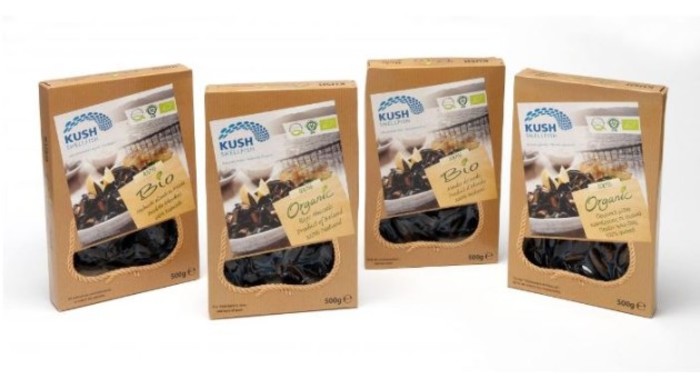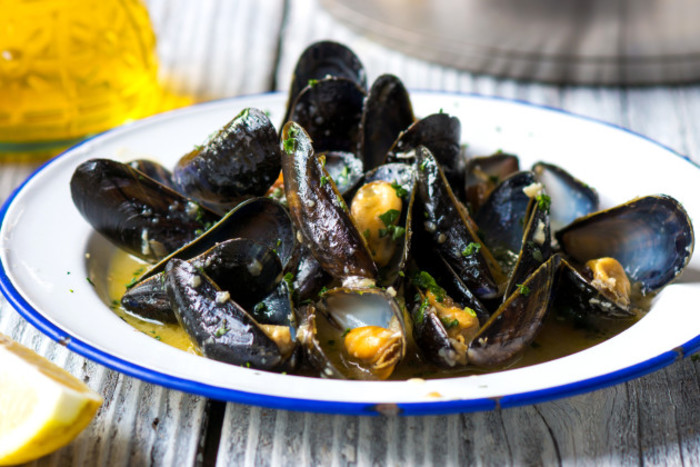A Kenmare seafood firm may rebrand for the US - because its name is slang for cannabis
Kerry’s Kush Shellfish finds itself in an unusual position as it expands outside Europe.
KERRY’S KUSH SHELLFISH wants to break into the US seafood market – but first it has a slight brand-name problem to crack.
Company director John Harrington told Fora that branding agency Begley Hutton, which is helping the firm re-design its packaging to suit the American market, has discovered that the word ‘kush’ has a special meaning across the Atlantic – it’s slang for cannabis.
“It’s the equivalent of ‘skunk’ in London,” Harrington said, noting that the term more accurately refers to “high-quality cannabis”.
“The question is, do you go forward, tongue-in-cheek and say, ‘high-quality mussels, high-quality hash’, or do you just steer it in another direction?” he said. ”It’s a genuine problem.”
The Kush name is based on a local term for a harbour’s ‘spit’ – the stretch of sand extending from the land out to sea – which Kenmare people call ‘cos’, the Irish for ‘leg’.
Harrington said that despite the publicity it could generate, it would be “high-stakes poker” to go ahead with the original name and he reckons the company will go under the name ‘Saint Patrick’ instead.
 Kush mussels
Kush mussels
Premium
Luckily, the problem came up at a time when the firm was undergoing a branding makeover anyway.
Kush, which recently won the aquaculture category at the Bord Iascaigh Mhara annual seafood awards, celebrates its 30th year in business in 2017.
It was set up by Harrington and his brother, Flor, who acquired a mussels business from a trio of former PE teachers, including Kevin O’Brien, who went on to found the Let’s Go summer camps.
The company – which produces rope mussels, oysters and periwinkles – is redesigning the labeling on its vacuum-packed products to make it compatible with the America market “from a regulatory and from an image point of view”.
Harrington said he will visit Boston in the new year, his second visit to the city in two years, and hopes to close a deal with a distributor, although he doesn’t expect to see his product on the shelves for at least another two years. Kush mussels are already sold in Dubai, France, Spain and the UK.

Harrington said the firm produces small volumes “but they’re value added” – in other words, the price is topped up for customers willing to pay for a premium product.
That model helps alleviate “the commodity swing that might emerge in the market”.
As with any commodity – whether it’s cotton or mussels – it’s difficult for producers to decipher where the market is going from one year to the next.
“(Mussels are) a non-quota species, so people go out and produce with really no knowledge of what the market will be when that comes for sale,” Harrington said.
“On the commodity side, really it’s other people’s fortunes or misfortunes that determine your own.”
He said that growth trajectory in the seafood market is “like the Kerry hills” – demand for seafood is growing but “it’s rising with sharp dips along the roads”.
To overcome that model, Harrington is looking to position Kush as a premium, organic product.
Conservation waters
Harrington said he is also trumpeting Kenmare Bay’s status as a special area of conservation with the product.
“If you’re looking for mussels for the Pope or for Bono, then you’d go to Kenmare Bay,” he said.
At the moment, Germany is Kush’s biggest market, but Harrington expects the more competitive southern European states “where there’s more indigenous fish-eating habits” will be more important in the long term.
“They do eat fish in the Nordics, but it’s not the same daily routine as it is in Latin Europe.”
 John Harrington (left)
John Harrington (left)
‘Tricking around’
Before going into the fish business, the Harrington brothers had spend around five years “tricking around with mussels, making the money for the pints in college”.
Harrington said it was a pioneering industry in the early days.
“You really were doing something that hadn’t been done before, so an awful lot of the structures for testing for safety, everything had to be created from scratch. You went into farming, you went into the pub business, you went into retail, you could copy somebody else.
“What we were doing, you could turn the table upside down and eat off the floor. Everything was wide open.”
Kush is profitable. Most recently accounts show that the firm made a thin profit for the financial year ended 30 April 2015, pushing accumulated profits to over €611,500. It employed an average of seven people through the year.
Harrington attributes the positive figures to slowly nailing down a successful pattern.
“In farming, you save your crops in the summer and you sell them whenever there’s an opportunity. Biotoxin issues in the summer meant we couldn’t really supply the (fish) market with any consistency, so it’s winter sales now. Everything had to be redesigned, so Kush became a business that sells in the winter, not in the summer.
“Establishing the pattern of the business I would say was a 20-year process.”
Harrington said the biggest issue standing in the way of Ireland’s mussels industry is that “there isn’t a younger generation” taking over – but he reckons that will change when the sector starts making serious money.
“While prices haven’t gone up, volumes have gone up, so economics have improved. Really, there’s a bit of a gear shift that will happen here at some stage, where it becomes a lucrative business, but not yet.
“The next generation will have a much better business.”






